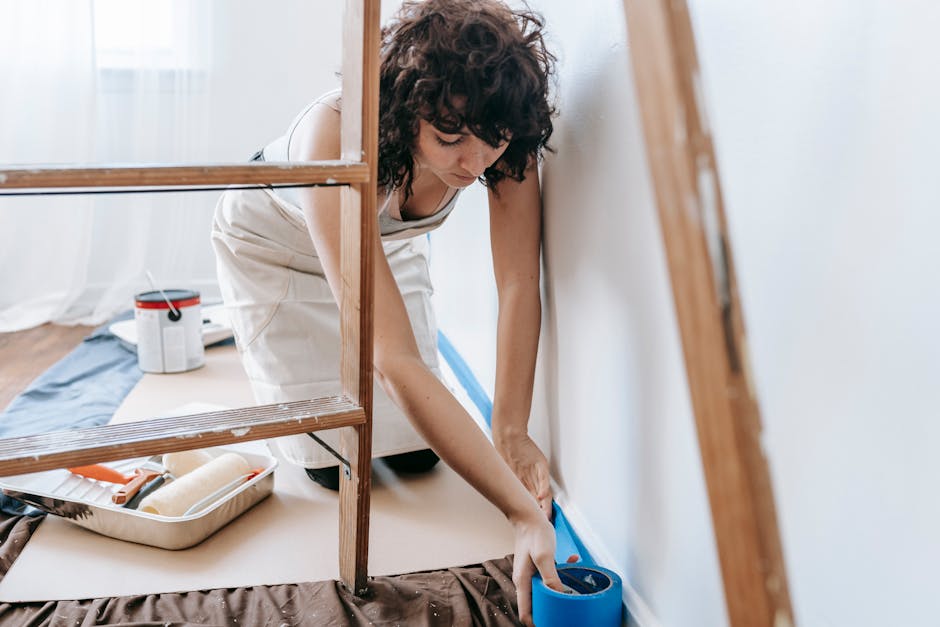Onsen Etiquette: Your Guide to Public Baths & Ultimate Relaxation

Onsen Etiquette: Your Guide to Public Baths & Ultimate Relaxation
Imagine sinking into steaming, mineral-rich water, surrounded by stunning natural scenery. That's the magic of an onsen, a Japanese hot spring. But navigating the world of public baths can be a little daunting, especially if it's your first time. Don't worry! I'm here to guide you through the onsen etiquette, ensuring you have a relaxing and respectful experience. Think of me as your friendly onsen guide, sharing tips and tricks learned from personal adventures (and the occasional awkward moment!).
Understanding the Allure of Onsen

Onsen are much more than just hot baths; they are deeply ingrained in Japanese culture. They are places for relaxation, healing, and social connection. The water, heated by volcanic activity, is naturally rich in minerals believed to have therapeutic benefits for various ailments, from muscle aches to skin conditions. Beyond the physical benefits, onsen offer a unique opportunity to disconnect from the stresses of daily life and reconnect with yourself and nature.
For centuries, people have flocked to onsen for both physical and spiritual rejuvenation. It's a ritual, a tradition, and a vital part of Japanese life. The serenity and tranquility found in these spaces are truly something special. I remember my first onsen experience vividly. The initial nervousness melted away as soon as I stepped into the warm water, leaving me feeling completely relaxed and revitalized. It was truly an unforgettable experience.
Preparing for Your Onsen Experience: What to Bring

Before you even think about stepping into the water, a little preparation is key. Here's a checklist of essentials to ensure a smooth and enjoyable visit:
- Small Towel: This is your modesty towel. It's used for washing, drying, and covering yourself discreetly as you move around the bathing area. Most onsen sell these, but you can also bring your own.
- Larger Towel: For drying yourself thoroughly after your bath. Some onsen include this, but it's always good to double-check.
- Toiletries: Shampoo, conditioner, body wash, and any other personal care items you might need. Many onsen provide these, but bringing your favorites ensures you have everything you need.
- Yukata (if provided): Many onsen ryokans (traditional Japanese inns) provide a yukata, a light cotton kimono, for you to wear around the property. This is typically worn after your bath.
- Change of Clothes: Comfortable clothes to change into after your bath.
- Hair Tie: If you have long hair, bring a hair tie to keep it out of the water.
- Water Bottle: Staying hydrated is important, especially in the hot water.
It's also a good idea to leave any valuables, like jewelry, in your room or in a locker provided at the onsen. Remember, simplicity is key. The goal is to relax and enjoy the experience, not to worry about your belongings.
Onsen Etiquette: A Step-by-Step Guide

Now, let's get to the heart of the matter: the etiquette. Onsen etiquette is all about respect – respecting yourself, other bathers, and the traditions of the onsen. Here's a breakdown of the essential rules:
1. The Changing Room: Undressing and Storing Your Belongings
Upon entering the onsen facility, you'll first encounter the changing room. These rooms are usually separated by gender (look for signs indicating "men" 男 or "women" 女). Here, you'll undress completely. Yes, completely! Nudity is the norm at onsen. Don't feel embarrassed; everyone is in the same boat.
Carefully place your clothes in a basket or locker provided. Keep your small towel with you. Remember, you are not allowed to wear swimsuits in the onsen, unless specifically stated otherwise (some modern onsen might allow it in mixed-gender bathing areas).
2. The Washing Area: Cleansing Before Entering the Water
Before entering the onsen itself, you must thoroughly wash your body. This is perhaps the most important aspect of onsen etiquette. The washing area is usually located near the bathing pools and has rows of showers or faucets with small stools.
Here's the washing routine:
- Sit on a stool: Always sit on a stool while washing. Standing is considered impolite as you might splash water on others.
- Wash thoroughly: Use the provided soap, shampoo, and conditioner to wash your entire body and hair thoroughly. Rinse well to remove all traces of soap.
- Respect others: Be mindful of splashing water on other bathers. Try to keep your washing area clean and tidy.
This washing ritual is crucial for maintaining the cleanliness of the onsen water and showing respect to other bathers. Think of it as preparing yourself to enter a sacred space.
3. Entering the Onsen: The Art of Submersion
Now that you're clean, it's time to enter the onsen. Here are a few things to keep in mind:
- Enter slowly and quietly: Ease yourself into the water gradually, especially if it's very hot. Avoid making loud noises or splashing.
- Keep your small towel out of the water: You can place it on your head, fold it neatly on the side of the pool, or leave it in a designated area. Dipping it in the water is considered unsanitary.
- Relax and enjoy: Find a comfortable spot and simply relax. Close your eyes, breathe deeply, and let the warm water soothe your muscles.
4. What to Do While Bathing: Conversation, Silence, and Respect
The onsen is a place for relaxation and contemplation. Here are some guidelines on how to behave while bathing:
- Conversation: Quiet conversation is generally acceptable, but avoid loud or boisterous behavior. Remember, others are there to relax.
- Silence: If you prefer silence, that's perfectly fine too. Many people use the onsen as a place for meditation and reflection.
- Tattoos: Tattoos are still often associated with organized crime in Japan, and many onsen have a strict no-tattoo policy. If you have a tattoo, try to cover it with a bandage or waterproof tape. Some onsen are becoming more lenient, especially those catering to international tourists, so it's always a good idea to check beforehand. There are also "tattoo-friendly" onsen that explicitly welcome guests with tattoos.
- No drinking or eating: Food and drinks are generally not allowed in the onsen pools.
- No swimming or diving: The onsen is not a swimming pool. Avoid swimming, diving, or any other disruptive activities.
- Don't stare: This might seem obvious, but it's important to be mindful of your gaze. Avoid staring at other bathers.
Remember, the key is to be respectful and considerate of others. Treat the onsen as a sanctuary of tranquility.
5. Exiting the Onsen: Drying Off and Getting Dressed
When you're ready to leave the onsen, dry yourself off with your larger towel as much as possible before returning to the changing room. This prevents water from dripping on the floor and bothering other bathers.
Once in the changing room, dry yourself completely and get dressed. Some onsen provide amenities like hair dryers and lotions, so feel free to use them. Return your locker key and any other items you borrowed before leaving.
Beyond the Basics: Tips for a Deeper Onsen Experience

Now that you know the basics of onsen etiquette, here are a few extra tips to enhance your experience:
- Try different types of onsen: There are many different types of onsen, each with its own unique characteristics. Some are indoor, some are outdoor (rotenburo), and some have different mineral compositions. Experiment and find your favorites!
- Visit during off-peak hours: Onsen can get crowded, especially on weekends and holidays. Try visiting during off-peak hours, such as early morning or late evening, to avoid the crowds.
- Stay at a ryokan with an onsen: For the ultimate onsen experience, consider staying at a ryokan, a traditional Japanese inn, that has its own onsen. This allows you to enjoy the onsen at your leisure, without having to worry about commuting.
- Learn a few basic Japanese phrases: Knowing a few basic Japanese phrases, such as "Konnichiwa" (hello), "Arigato" (thank you), and "Sumimasen" (excuse me), will go a long way in showing respect and making your experience more enjoyable.
- Embrace the experience: Relax, let go of your inhibitions, and fully embrace the onsen experience. It's a chance to disconnect from the stresses of daily life and reconnect with yourself and nature.
Common Onsen Mistakes to Avoid

Even with the best intentions, it's easy to make a few mistakes when visiting an onsen for the first time. Here are some common pitfalls to avoid:
- Forgetting to wash thoroughly: This is the most important rule, so don't skip it!
- Dipping your towel in the water: This is considered unsanitary.
- Being too loud or disruptive: Remember, the onsen is a place for relaxation.
- Wearing a swimsuit (unless permitted): Nudity is the norm at most onsen.
- Bringing valuables into the bathing area: Leave them in your room or in a locker.
- Ignoring the no-tattoo policy: If you have a tattoo, try to cover it or choose a tattoo-friendly onsen.
By avoiding these common mistakes, you'll ensure that you have a respectful and enjoyable onsen experience.
The Lasting Benefits of Onsen Relaxation

Beyond the immediate feeling of relaxation and rejuvenation, onsen offer a host of lasting benefits. The mineral-rich water can help to improve circulation, relieve muscle pain, and soothe skin conditions. The warmth of the water can also help to reduce stress and promote better sleep.
But perhaps the most profound benefit of onsen is the opportunity to disconnect from the digital world and reconnect with yourself and nature. In our fast-paced, technology-driven world, it's rare to find moments of true peace and quiet. Onsen provide that space, allowing you to slow down, breathe deeply, and appreciate the simple pleasures of life.
My onsen experiences have taught me the importance of self-care and the power of nature to heal and rejuvenate. I encourage you to embrace the onsen culture and discover the many benefits it has to offer. So, pack your small towel, prepare to relax, and get ready for an unforgettable journey to ultimate relaxation!
Post a Comment